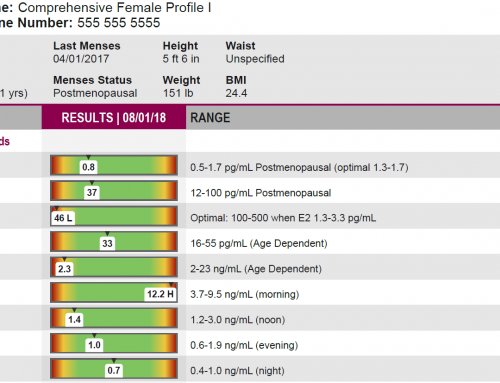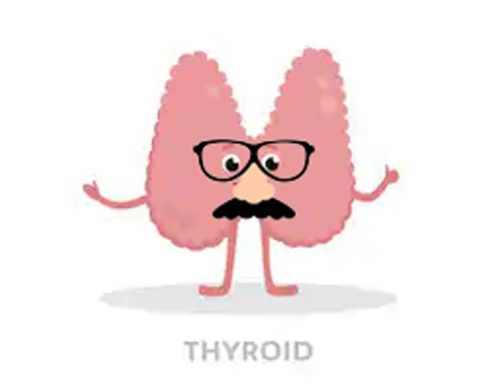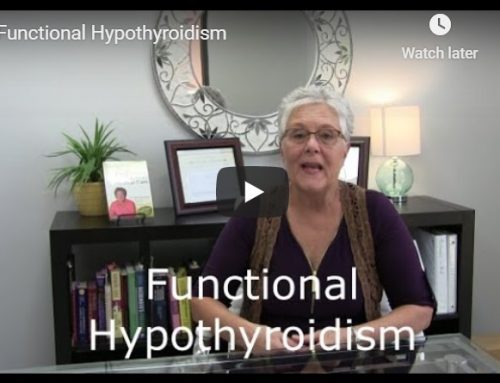Hashimoto’s thyroiditis can lead to an under active thyroid (hypothyroidism). Sometimes the usual lab tests don’t tell the whole story. In this video Dr. Marcantel discusses the importance of considering both laboratory test results AND symptoms in the treatment of this condition. Dr. Tina Marcantel is a naturopathic physician in Gold Canyon, Arizona, who also serves the East Valley cities of Mesa, Tempe, Scottsdale, Chandler, Queen Creek, Apache Junction, Gilbert, and the greater Phoenix area.
Video Transcript
I don’t go just by the blood work. I go by the symptomology of the patient. What the patient is telling me is what I have to look at, also, besides the blood work.
So let’s give you an example, here. I had this 35 year old patient, female, that came into my office–let’s call her “Jane”–and she came into my office with symptoms of just muscle aches and pains, she had difficulty concentrating, she had put on about 10 or 12 extra pounds, she was feeling tired all the time and was not able to get a deep sleep. So she had an array of symptoms when she came into my office.
I proceeded to do my regular lab work: thyroid panel, which is a free T3, a free T4, a TSH, and I did antibodies–the thyroid antibodies. When we got the results, her free T3, free T4, TSH, were all normal, but her thyroid antibodies were extremely high. So I sent her to an endocrinologist.
This was many years ago, when I first started practice. So, that’s the best thing to do is send her, refer her to an endocrinologist, which I did. And she came back to me a couple of months later, just distraught and crying. The endocrinologist told her, “You just have to live with this, because your free T3, free T4, and TSH are all normal and we can’t do anything about it because those numbers are all normal.” Well, she was upset about it and saying, “I’m feeling terrible. There’s something wrong with me.” And I said to her, well, this is a specialist, he’s an endocrinologist, you know, this is what he’s recommending. So she left my office.
Thank goodness, she went to another physician, out of state, she had done her homework, she was being proactive, and she went to another doctor. And this particular doctor looked outside of the box. Not just at the lab work, but also her symptomology, as well. And he put her on some thyroid medication.
She came back to me to tell me this, and to this day I am so grateful that she did, because she inspired me and she changed my life in the way that I perceived Hashimoto’s thyroiditis.
She told me that she was put on a dose of thyroid medication. Pretty much all of her symptoms had gone, she had lost the 10 pounds, she was able to concentrate, she had more energy, she was sleeping better, and she was just feeling a lot better.
I thanked her and she left such an impression on my life that I immersed myself into the teachings of this other doctor. And I also went to several conferences in other states about Hashimoto’s thyroiditis and how to treat it correctly, and to take into consideration not just the lab reports but the symptomology, as well.
So we now treat Hashimoto’s thyroiditis with medications as needed, according to not just what the TSH, free T3, free T4, tell us, but also the antibodies and the symptomology of the patient. And that was one of my biggest lessons and as I always say, my patients are my biggest teachers.





